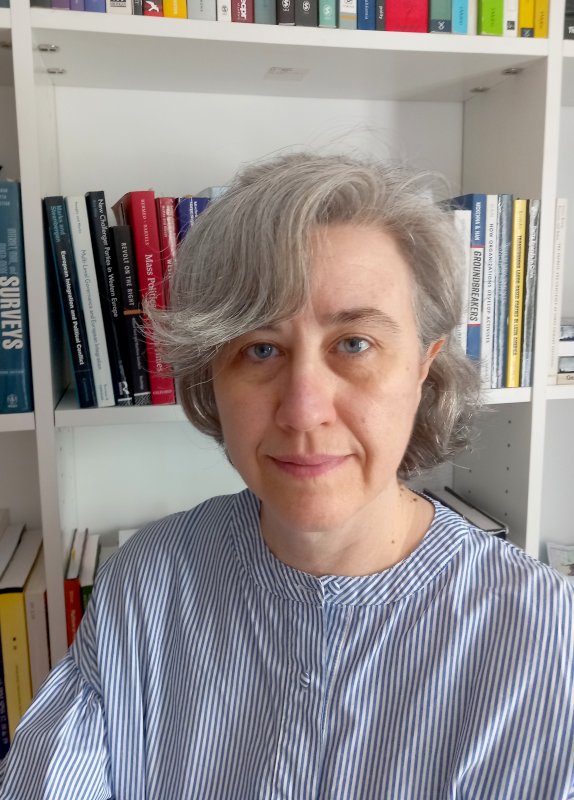When asked, most researchers in any discipline will agree that science and research outputs should be open to all, available for scrutiny and validation by peers, as well as accessible to the larger public, society and anyone interested in learning from research findings. Researchers in Migration Studies are no exception and, in fact, IMISCOE as a network of researchers and an organisation that promotes research in this field has been at the forefront of Open Science initiatives in the domain of Migration Studies.

Indeed, IMISCOE and its member institutes have led the way with the publication of the Gold Open Access journal Comparative Migration Studies, the Open Access book series with Springer, and the creation of the Migration Research Hub. Beyond IMISCOE, researchers and research institutions specialising in Migration Studies and closely related topics have produced over the last two decades a wide array of tools that are freely and openly available to all in the best spirit of Open Science: the MIPEX global index, the GLOBALCIT observatory, the NCCR on the move resources, the Data Hub of the Observatory of Public Attitudes to Migration, or the EthmigSurveyData Hub among many others.
Yet, the Open Science agenda and principles go beyond these remarkable efforts and, in this note, I would like to briefly articulate the areas where researchers and research organisations specialising in Migration Studies can still press ahead to make the ambition of opening science for the benefit of all a reality in the near future.
At the heart of all Open Science efforts and considerations lie the FAIR principles: making research data and outputs (including all sorts of publications) findable, accessible, interoperable and reusable. Embracing Open Science means thinking carefully, at each and every stage of our research process and activities, how we can actually and practically ensure that we implement these FAIR principles. I will provide some illustrations of practical steps for each of these four principles at various stages of the research cycle.
Making our research activities ‘findable’ implies, first and foremost, reflecting carefully about how we document it, how and where we store it, and whether we preserve it for the long term. At an initial stage of the research process (e.g. project conception) this entails, for example, making sure that your research proposal – or, at least, an abridged and non-confidential version of it – containing your proposed framework and methodology is properly documented, stored and archived with an appropriate digital object identifier (DOI). This can be done in the official research repository of your university or research centre, on Zenodo, or by creating your own personal/institutional repository in resources such as GitHub, OSF or Dataverse, among other options. This practice of making the conception stage of your research public is common practice in disciplines where experimental methods are frequently used (sometimes referred to as ‘pre-registration’). Once you undertake the research, it implies documenting your workflows, data collection instruments and data collected in such a way that they are all attributed a DOI (one for each separate document or file) and storing them in public repositories. At the dissemination stage, it involves making all outputs (from simple presentations to articles and books) public through a DOI and storing them in trusted repositories like the aforementioned ones.
Making our research ‘accessible’ requires taking the further step of offering all the previously mentioned documents and outputs in some form of public access. There are various degrees of open access and one can share some documents and data with no restrictions or limit access to other documents and data temporarily or permanently, or with select types of future users. This may be appropriate if your results or data are sensitivem but also if you want to embargo them while you prepare your key publications. You can also establish conditions for access.
Ensuring that your research outputs are ‘interoperable’ means slightly different things depending on the outputs and how they are made accessible, but in a nutshell it means that they should be shared in formats such that they can be read by the largest number of humans and machines. At a very basic level, this means making your research outputs available in universal file formats (e.g. rtf, pdf, csv, etc.) instead of proprietary formats (Microsoft, MacOS, SPSS, etc.), but it also requires thinking about the metadata standards that you use to describe your data, and whether the platform where you are storing or archiving your outputs is technically set up such that machines can automatically share data or metadata (e.g. if they have an API). If you just use your ordinary personal website to make your research available, chances are that it will not be technically set up to properly meet this principle, but if you use Zenodo, GitHub, a Dataverse or a trusted CESSDA or institutional repository they will comply with this principle.
Finally, making your research ‘reusable’ is fairly easy if you already comply with the previous three principles. As long as researchers (or machines) can find, access and read (through interoperable formats and communication channels) your research outputs, they will be able to reuse them.
The European Open Science Cloud (EOSC) is a relatively new comprehensive platform that facilitates easy and secure access to a wide range of FAIR research data, publications, tools, resources and services. Making sure that research in Migration Studies is visible and accessible through EOSC will multiply the reach of your findings and outputs. If you or your research organisation produces large datasets or online resources on Migration Studies, the Research Data Alliance (RDA) can be a useful organisation to network with experts that can help you navigate how to make them FAIR and how to connect them with EOSC.
Laura Morales is Professor of Political Science / Comparative Politics at Sciences Po, CEE and LIEPP, CNRS. She is an RDA/EOSC Future Ambassador for Open Science and will have a meeting point on Open Science at the IMISCOE conference in Warsaw.
